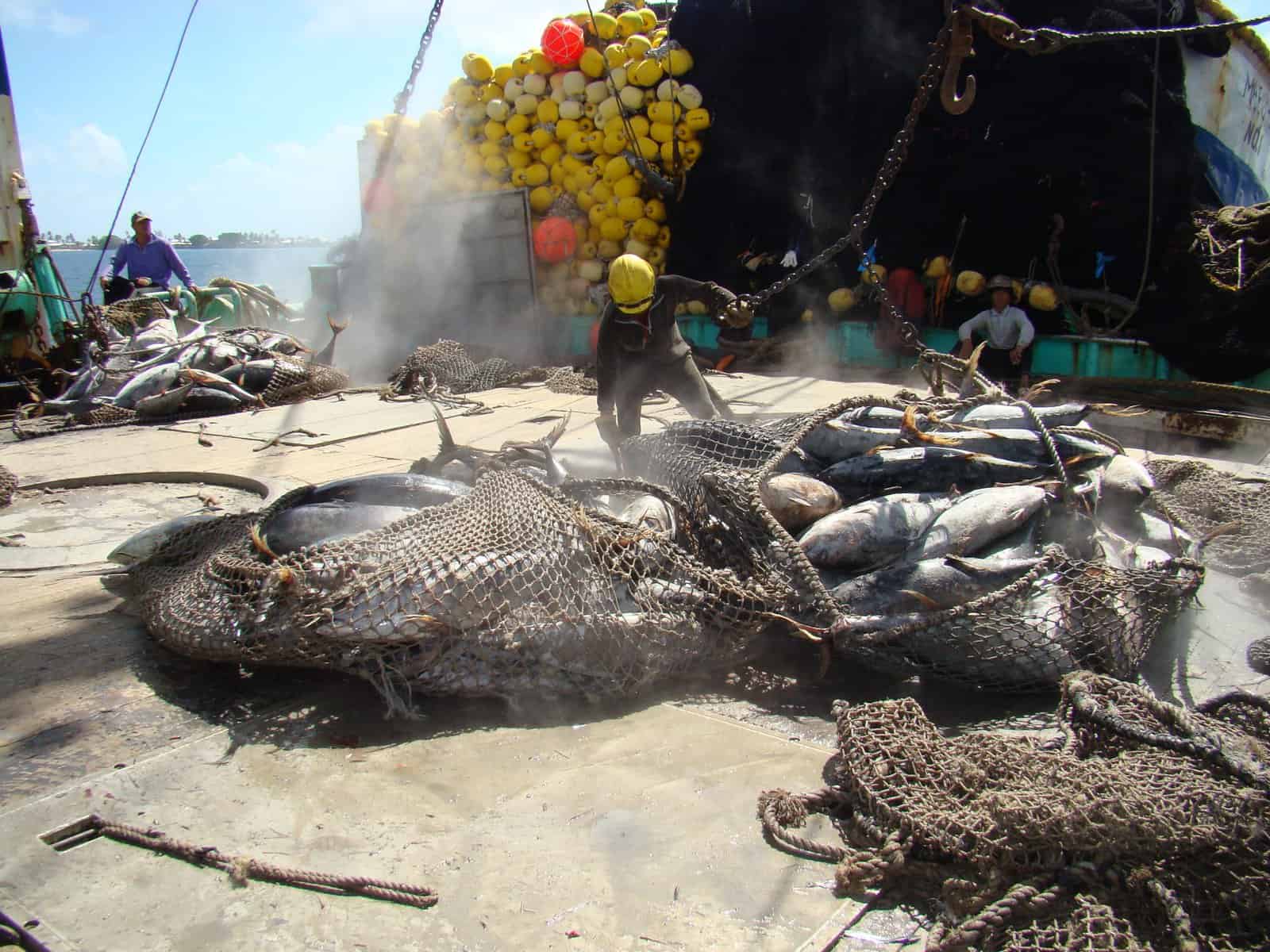A new Tropical Tuna Measure was adopted by the Western and Central Pacific Fisheries Commission 20th meeting which concluded early Saturday morning in Rarotonga, Cook Islands.
The measure will guide fishing controls for bigeye, skipjack, and yellowfin tuna in the WCPFC’s jurisdiction and was one of the key proposals of the 17 member countries of the Forum Fisheries Agency.
It has been eight years since the first Pacific-wide harvest strategy was agreed.
“WCPFC agreed to a mechanism to effectively implement its 2023 skipjack management procedure (MP). Now, the final piece of this MP is in place and sets WCPFC up to manage the world’s largest tuna resource more sustainably,” Pew Charitable Trust’s Glen Holmes said.
The strategy includes a provision on the use of Fish Aggregating Devices (FAD), left behind by fishing vessels and which damage reefs or wash up on beaches.
“The fishing industry should be required to clean up their own mess and it shouldn’t, so that was one positive aspect. The other positive aspect was more of the discussion around tracking requirements. So, both providing data to the site service provider as the secretary of Pacific community to better understand where FADs are and where they go where they end.
Having a tuna harvest strategy will help in the sustainable management of tuna stocks in the region, which are also the healthiest in the world.
There were also discussions to increase WCPFC focus on climate change and its impact on fisheries.
“After many years of negotiations, we are extremely disappointed that WCPFC could not agree to much-needed revisions to its transshipment rules, leaving it with the least-effective regulations of the major tuna regional fisheries management organisations. It also could not agree to a permanent compliance and monitoring measure. The inability of member countries to compromise and find consensus on these and other important issues weakens its efforts to put stronger, more comprehensive management in place for valuable Pacific fisheries, said Holmes.
Fishing crew labour standards
Meanwhile, a new rule for the treatment of crews of fishing vessels operating in the Pacific will be produced at next year’s Western and Central Pacific Fisheries Commission meeting in Fiji.
The proposal to have binding conservation and management measure for improving labor and crew welfare, human rights at the Fiji meeting was unanimously passed by delegates of the 20th meeting of the WCPFC in Rarotonga, Cook Islands.
Improving labour standards and crew welfare were being pushed by the WWF Pacific led civil society organisations as well as the 17 members of the Pacific Islands Forum Fisheries Agency.
WWF Pacific Programme Manager in Central and Western Pacific, Bubba Cook said it “was a very huge step and it’s very encouraging to hear the level of support from all the members around the table. So, we’re optimistic that we will see that that measure approved next December.”
“It was a bit of a bittersweet outcome because on one hand, they pushed the issue as far back in the agenda as possible and then they essentially only gave about 30 minutes to speak to it. When you look at it in the whole overall meeting, we spent the better part of three or four days, probably 70 percent of their time discussing, the size of the pie and how big a slice everyone gets, but when it came to the people who actually go out and harvest those slices of the pie, we only gave them a short trip, which was a half hour at best.”
Research by the Pew Charitable Trusts last year suggests, more than 100,000 fishing-related deaths occur each year—three to four times previous estimates.
